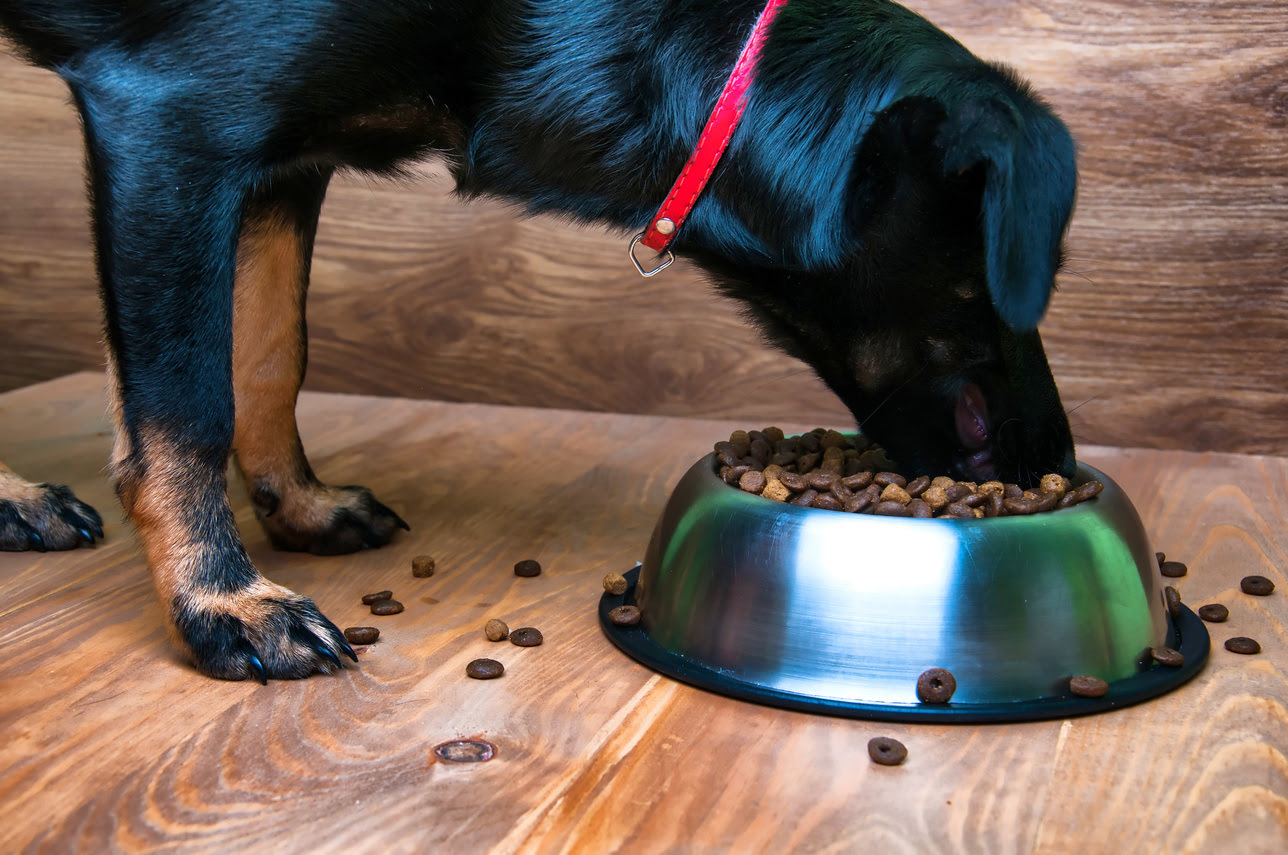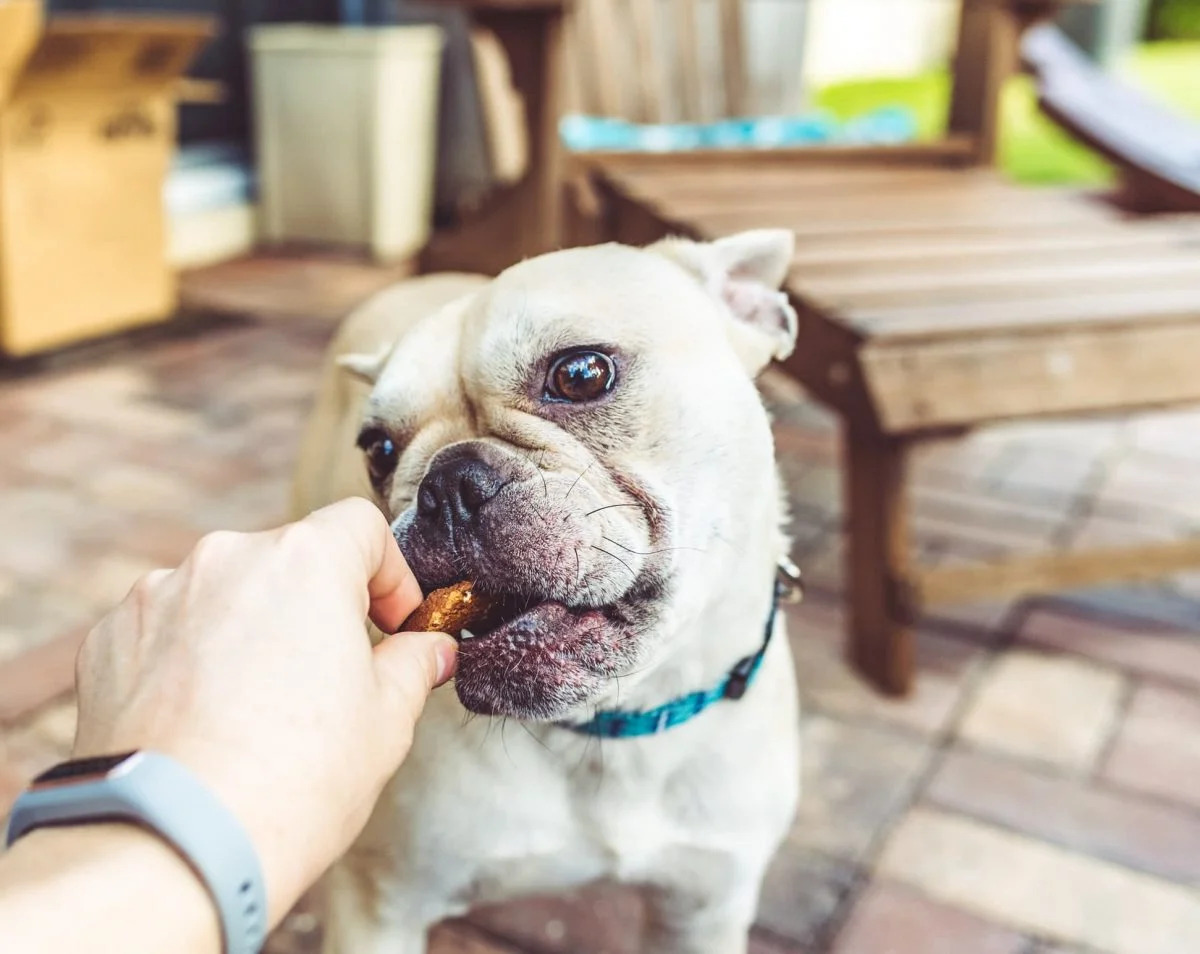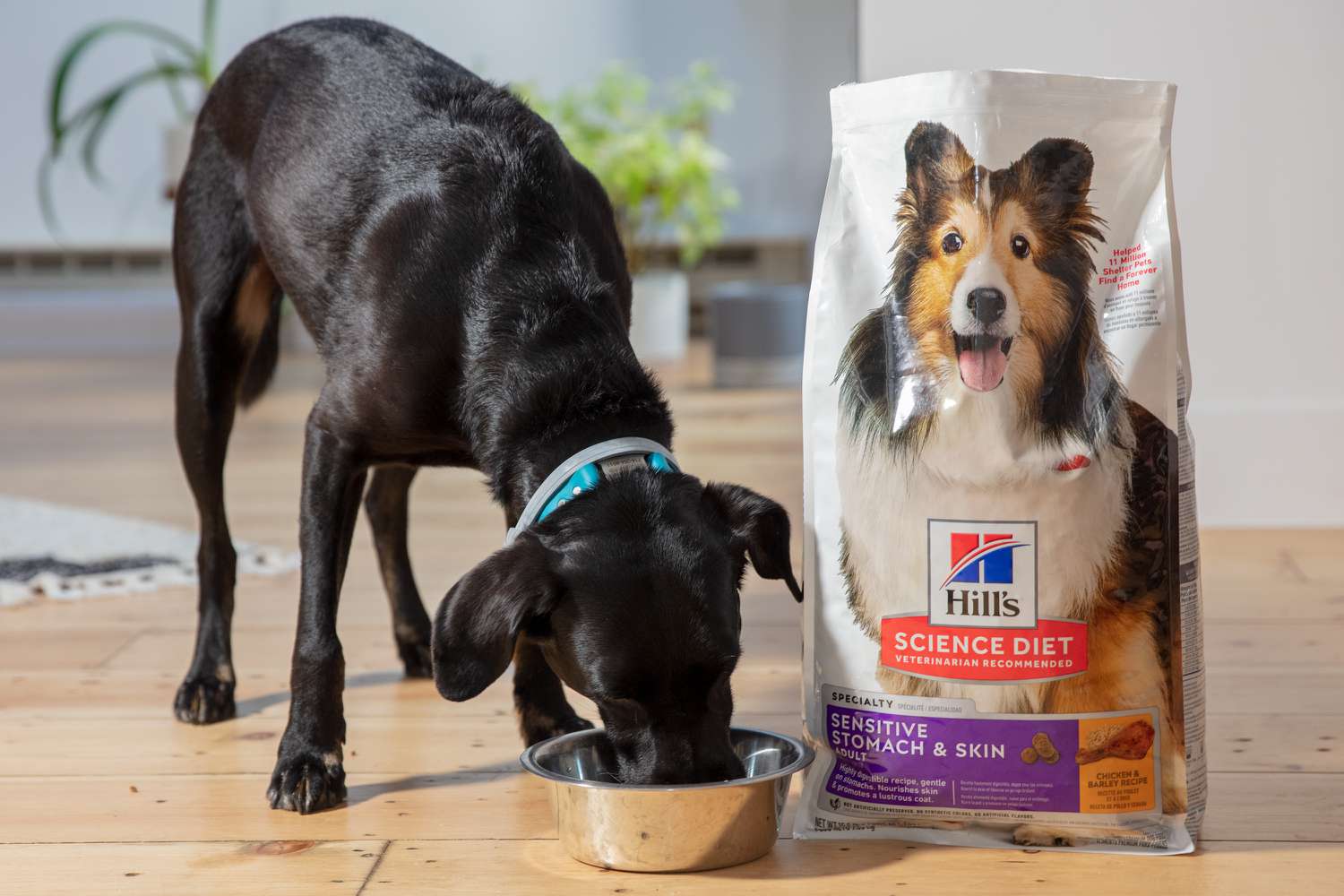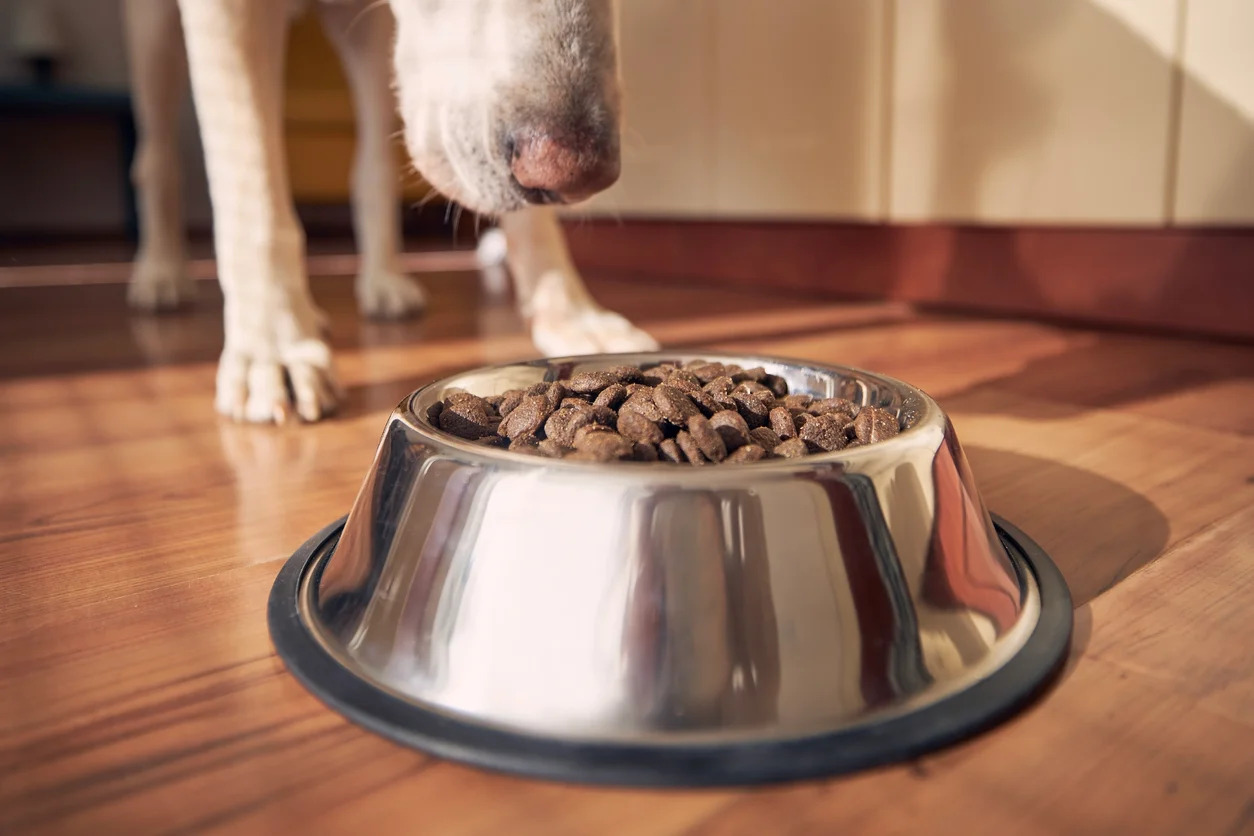Home>Health & Wellness>Nutrition & Diet>What Is A Good Diet For A 10-Year-Old Dog


Nutrition & Diet
What Is A Good Diet For A 10-Year-Old Dog
Published: January 28, 2024
Discover the best nutrition and diet for your 10-year-old dog. Learn how to provide a healthy and balanced diet to support your dog's well-being.
(Many of the links in this article redirect to a specific reviewed product. Your purchase of these products through affiliate links helps to generate commission for Pawsomeoldies.com, at no extra cost. Learn more)
Table of Contents
Introduction
As our beloved canine companions age, their dietary needs evolve to support their changing health requirements. A 10-year-old dog, considered a senior in the canine world, requires a specialized diet to promote overall well-being and vitality. Just as humans benefit from tailored nutrition as they grow older, senior dogs also thrive when provided with a diet that addresses their specific nutritional needs.
In this comprehensive guide, we will delve into the essential components of a good diet for a 10-year-old dog. From understanding the unique nutritional requirements of senior dogs to exploring the significance of protein, fat, carbohydrates, vitamins, and minerals in their diet, we will provide valuable insights to help you make informed decisions about your senior dog's nutrition.
By gaining a deeper understanding of the dietary needs of aging dogs, you can ensure that your furry friend receives the necessary nutrients to support their aging bodies and maintain their quality of life. Let's embark on this enlightening journey to uncover the key elements of a nourishing diet for your 10-year-old canine companion.
Understanding the Nutritional Needs of a 10-Year-Old Dog
As dogs reach their senior years, their bodies undergo various physiological changes, leading to altered nutritional requirements. Understanding the specific nutritional needs of a 10-year-old dog is crucial for ensuring their health and well-being.
Senior dogs often experience a decrease in metabolic rate and reduced activity levels. Consequently, their calorie requirements may diminish to prevent weight gain. However, it's essential to strike a balance, as some senior dogs may become less efficient at utilizing nutrients, necessitating adjustments to their diet to prevent malnutrition.
Moreover, aging dogs are prone to various health issues, such as joint problems, reduced organ function, and dental concerns. Therefore, their diet should be tailored to address these age-related issues. For instance, incorporating joint-supporting nutrients like glucosamine and chondroitin can aid in maintaining mobility and alleviating discomfort associated with aging joints.
Furthermore, senior dogs may experience changes in their digestive capabilities, making it important to select easily digestible food options. This can help mitigate gastrointestinal discomfort and ensure optimal nutrient absorption.
In addition to physical changes, cognitive function in senior dogs may also decline. Including antioxidants and omega-3 fatty acids in their diet can support brain health and cognitive function, potentially delaying cognitive decline associated with aging.
Understanding the nutritional needs of a 10-year-old dog involves recognizing the significance of high-quality protein, moderate fat content, and complex carbohydrates in their diet. These nutrients play a pivotal role in maintaining muscle mass, providing sustained energy, and supporting overall health in senior dogs.
By comprehending the unique nutritional requirements of senior dogs, pet parents can make informed decisions when selecting the most suitable diet for their aging canine companions. This understanding empowers caregivers to provide tailored nutrition that promotes longevity, vitality, and a high quality of life for their senior dogs.
Protein Requirements for Senior Dogs
Protein is a fundamental component of a senior dog's diet, playing a crucial role in supporting various bodily functions as they age. As dogs grow older, their protein requirements may undergo significant changes, necessitating careful consideration when selecting the appropriate protein sources for their diet.
In the realm of senior dog nutrition, high-quality protein takes center stage. It serves as the building block for lean muscle mass, which is vital for maintaining mobility and overall strength in aging dogs. Additionally, protein supports the repair and regeneration of body tissues, contributing to the preservation of organ function and overall health.
When choosing protein sources for senior dogs, it is imperative to prioritize lean and easily digestible options. Lean meats such as chicken, turkey, and fish offer high-quality protein while minimizing the intake of unhealthy fats that can contribute to weight gain and strain on aging organs. Furthermore, these protein sources are generally easier for senior dogs to digest, reducing the likelihood of gastrointestinal discomfort.
Incorporating animal-based protein into a senior dog's diet ensures that they receive essential amino acids necessary for various physiological functions. These amino acids play a pivotal role in supporting immune function, promoting healthy skin and coat, and facilitating the repair of body tissues. Additionally, specific amino acids, such as taurine and L-carnitine, contribute to heart health and overall cardiovascular function in senior dogs.
It's important to note that while protein is crucial for senior dogs, excessive intake can strain the kidneys and other organs. Therefore, striking a balance and consulting with a veterinarian to determine the optimal protein intake for an individual senior dog is essential.
In essence, meeting the protein requirements of senior dogs involves selecting high-quality, easily digestible protein sources that support muscle maintenance, tissue repair, and overall health. By understanding the significance of protein in the diet of aging dogs, pet parents can make informed choices that contribute to the well-being and longevity of their senior canine companions.
Fat and Carbohydrate Needs for Older Dogs
Fat and carbohydrates play pivotal roles in meeting the energy requirements and supporting the overall health of older dogs. As dogs age, their metabolism may slow down, and their activity levels may decrease, necessitating adjustments in their fat and carbohydrate intake to maintain optimal health and vitality.
Importance of Fat in Senior Dog Diets
In the realm of senior dog nutrition, dietary fat serves as a concentrated source of energy, providing essential fatty acids that support various bodily functions. While it's crucial to monitor fat intake to prevent obesity, especially in less active senior dogs, incorporating healthy fats into their diet offers numerous benefits.
Omega-3 fatty acids, commonly found in fish oil, flaxseed, and certain types of algae, play a significant role in supporting joint health and reducing inflammation, which is particularly beneficial for senior dogs experiencing age-related joint issues. Additionally, these fatty acids contribute to healthy skin and coat, helping to alleviate skin dryness and itchiness commonly observed in aging dogs.
Furthermore, fat intake is essential for the absorption of fat-soluble vitamins, including vitamins A, D, E, and K, which are vital for various physiological processes in senior dogs. By including moderate amounts of healthy fats in their diet, pet parents can support their senior dogs' overall well-being and address specific age-related health concerns.
Read more: What’s Good For Dogs’ Renal Diet
The Role of Carbohydrates in Senior Dog Nutrition
Carbohydrates are a valuable source of energy for older dogs, providing readily available fuel for their daily activities. While dogs are primarily carnivorous, incorporating complex carbohydrates such as whole grains, legumes, and vegetables into their diet offers a range of benefits for senior dogs.
Complex carbohydrates provide fiber, which supports digestive health and helps regulate blood sugar levels, contributing to weight management and overall metabolic health in aging dogs. Additionally, these carbohydrates offer essential nutrients, including vitamins, minerals, and antioxidants, which play a role in supporting immune function and overall vitality in senior dogs.
Moreover, selecting carbohydrates with a low glycemic index can help prevent rapid spikes in blood sugar levels, which is particularly important for senior dogs at risk of developing age-related conditions such as diabetes or obesity.
By understanding the significance of fat and carbohydrates in the diet of older dogs, pet parents can make informed choices that contribute to the overall health, energy levels, and longevity of their senior canine companions. Balancing the intake of healthy fats and complex carbohydrates is essential in formulating a well-rounded diet that meets the specific nutritional needs of aging dogs.
Essential Vitamins and Minerals for Aging Dogs
As dogs age, their bodies undergo various physiological changes that may impact their ability to absorb and utilize essential vitamins and minerals. Therefore, ensuring that aging dogs receive adequate amounts of these vital nutrients is crucial for supporting their overall health and well-being.
Importance of Vitamin E and C
Vitamin E and vitamin C play significant roles in supporting the immune system and overall cellular health in aging dogs. Vitamin E, a powerful antioxidant, helps protect cells from oxidative damage, which becomes increasingly important as dogs age. Additionally, it contributes to skin and coat health, supporting senior dogs in maintaining a healthy and lustrous appearance.
Vitamin C, another potent antioxidant, aids in combating the effects of aging and supports the body's natural defense mechanisms. It also plays a role in collagen synthesis, contributing to joint health and mobility in senior dogs. By incorporating adequate amounts of vitamin E and C into the diet of aging dogs, pet parents can help mitigate the impact of oxidative stress and support their senior canine companions' overall vitality.
Role of B Vitamins
The B vitamins, including B1 (thiamine), B2 (riboflavin), B3 (niacin), B6, and B12, are essential for various physiological functions in aging dogs. These vitamins play crucial roles in energy metabolism, nerve function, and the maintenance of healthy skin and coat. Additionally, B vitamins contribute to the production of red blood cells and support cognitive function, which is particularly important for senior dogs experiencing age-related cognitive decline.
By ensuring that senior dogs receive adequate levels of B vitamins in their diet, pet parents can support their overall energy levels, neurological function, and physical well-being as they navigate the challenges of aging.
Significance of Minerals such as Calcium and Phosphorus
Calcium and phosphorus are vital minerals that play a pivotal role in maintaining bone health and skeletal integrity in aging dogs. As dogs age, their bone density and strength may diminish, making the inclusion of these minerals in their diet essential for preventing age-related bone issues such as osteoporosis and fractures.
Balancing the intake of calcium and phosphorus is crucial, as an imbalance can lead to skeletal abnormalities and other health concerns. By providing senior dogs with the appropriate levels of these minerals, pet parents can contribute to the maintenance of strong and healthy bones, supporting their mobility and overall quality of life.
In essence, ensuring that aging dogs receive adequate levels of essential vitamins and minerals, including vitamin E, vitamin C, B vitamins, calcium, and phosphorus, is integral to supporting their overall health, vitality, and longevity. By incorporating these vital nutrients into the diet of senior dogs, pet parents can play a proactive role in promoting their aging canine companions' well-being as they embrace their golden years.
Special Considerations for Senior Dog Diets
When formulating a diet for senior dogs, several special considerations must be taken into account to address their unique nutritional needs and promote their overall well-being. These considerations encompass various aspects of senior dog care, including dietary adjustments, hydration, and potential health conditions commonly associated with aging.
Caloric Adjustments
As dogs age, their metabolism may slow down, leading to decreased energy requirements. It is essential to adjust their caloric intake to prevent weight gain and maintain a healthy body condition. However, individual variations in activity levels and health status should be considered when determining the appropriate caloric adjustments for senior dogs.
Hydration Support
Senior dogs may be prone to dehydration due to reduced thirst perception or underlying health issues. Ensuring adequate hydration is crucial for supporting their kidney function, joint health, and overall well-being. Incorporating wet or moistened food into their diet can contribute to their daily water intake, promoting proper hydration.
Dental Health Considerations
Dental issues, such as gum disease and tooth decay, are common among senior dogs. Selecting soft or easily chewable food options can help alleviate dental discomfort and support proper nutrition intake. Additionally, incorporating dental hygiene practices, such as regular teeth brushing and dental treats, can contribute to maintaining their oral health.
Joint and Mobility Support
Many senior dogs experience age-related joint issues, such as arthritis or reduced mobility. Including ingredients rich in omega-3 fatty acids, glucosamine, and chondroitin in their diet can support joint health and alleviate discomfort associated with aging joints. Furthermore, maintaining an optimal body weight through proper nutrition can reduce the strain on their joints, promoting mobility and overall comfort.
Digestive Health Management
Senior dogs may encounter digestive challenges, such as reduced digestive enzyme production and gastrointestinal sensitivity. Selecting easily digestible food options and incorporating dietary fiber can support their digestive health and nutrient absorption. Additionally, probiotics and digestive supplements may be beneficial in promoting a healthy gut microbiome.
Health Condition Management
Senior dogs are more susceptible to age-related health conditions, such as kidney disease, heart issues, and cognitive decline. Tailoring their diet to address specific health concerns, such as reducing phosphorus intake for kidney support or incorporating antioxidants for cognitive function, can play a crucial role in managing these conditions and promoting their overall health.
By considering these special factors when designing a diet for senior dogs, pet parents can provide tailored nutrition that addresses the unique needs of their aging canine companions. These considerations contribute to supporting their health, vitality, and quality of life as they gracefully navigate their senior years.
Read more: What Is A Good Diet For A Whelping Mom Dog
Conclusion
In conclusion, providing a good diet for a 10-year-old dog, or any senior canine companion, is a multifaceted endeavor that requires a deep understanding of their evolving nutritional needs. As dogs transition into their golden years, their bodies undergo various changes that necessitate adjustments in their diet to support their overall health and well-being.
By comprehending the unique nutritional requirements of senior dogs, pet parents can make informed decisions when selecting the most suitable diet for their aging canine companions. From the significance of high-quality protein, moderate fat content, and complex carbohydrates to the essential role of vitamins, minerals, and special considerations for senior dog diets, every aspect of their nutrition plays a pivotal role in promoting longevity and vitality.
It is crucial to recognize that a well-rounded diet for senior dogs goes beyond mere sustenance; it serves as a cornerstone for their quality of life. Tailoring their diet to address specific age-related concerns, such as joint health, cognitive function, and digestive well-being, empowers pet parents to proactively support their senior dogs as they embrace their golden years.
Moreover, the bond between pet parents and their senior dogs is deeply intertwined with the care and attention devoted to their nutrition. By embracing the responsibility of providing a nourishing diet tailored to their aging needs, pet parents not only contribute to their physical health but also reinforce the emotional connection that enriches their companionship.
In essence, the journey of crafting a good diet for a 10-year-old dog is a testament to the unwavering commitment and love that pet parents hold for their senior canine companions. By honoring their evolving nutritional needs and embracing the role of caregivers with compassion and dedication, pet parents can ensure that their aging dogs thrive, reveling in the joy of each moment shared together.
As we bid farewell to this exploration of senior dog nutrition, let us carry forward the knowledge and insights gained, nurturing the well-being of our senior dogs with the utmost care and devotion. May their golden years be adorned with vitality, comfort, and the enduring warmth of our companionship.











